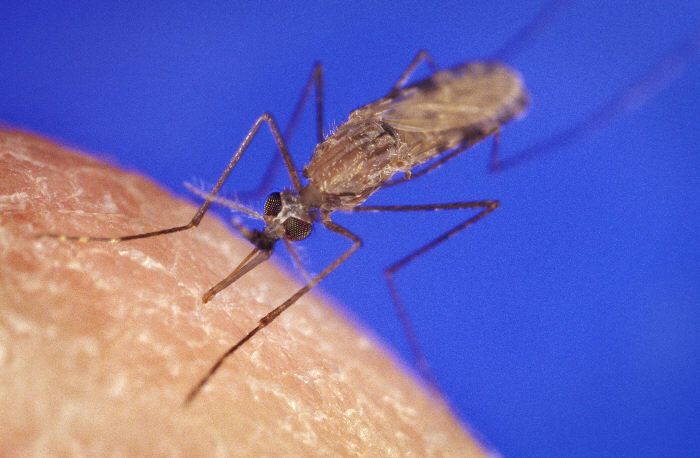
Malaria kills more than 200,000 people per year, and many researchers are working to find a way to quell the impact of the illness. In a study published today in the journal Nature Biotechnology, researchers from Imperial College London and elsewhere have shown that a species of malaria-spreading mosquito native to sub-Saharan Africa can be genetically modified to become infertile, and that once this trait is introduced into a population, it can spread quickly.
While most genes are passed on to a limited portion of offspring, these inserted bits of genetic material are inherited by more than 90 percent of the altered insects' spawn. The study explains that the inserted gene is recessive, meaning that two copies are required for a mosquito to be infertile. Thus, the gene can spread throughout the population before a large portion of insects receive two copies of the gene and become infertile and unable to produce offspring.
The researchers employed a new technique called CRISPR, a genetic method that allows scientists to cut DNA specific location in the genome and to insert desired genes, in a way that's much quicker and cheaper than previously possible. The scientists in this case have modified the genome of Anopheles gambiae, an important malaria vector.
This is not the first time scientists have used CRISPR to try to prevent mosquitoes from passing on the parasite. Two weeks ago, scientists from University of California, Irvine, announced that they used CRISPR to render an Indian malaria-spreading mosquito unable to pass on the parasite; in that case, the inserted genes cause the insect's immune system to recognize the malaria pathogen and "blind" it, so that it can't make it into the animal's salivary glands. In the Nature Biotechnology paper, the altered mosquitoes cannot properly produce eggs.
Study author Tony Nolan suggests that if used in the field, the method wouldn't necessarily negatively impact the environment. "There are roughly 3,400 different species of mosquitoes worldwide, and while Anopheles gambiae is an important carrier of malaria," he said in a statement, "it is only one of around 800 species of mosquito in Africa, so suppressing it in certain areas should not significantly impact the local ecosystem."
Uncommon Knowledge
Newsweek is committed to challenging conventional wisdom and finding connections in the search for common ground.
Newsweek is committed to challenging conventional wisdom and finding connections in the search for common ground.
About the writer
Douglas Main is a journalist who lives in New York City and whose writing has appeared in the New York ... Read more
To read how Newsweek uses AI as a newsroom tool, Click here.








